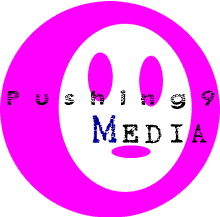|
GEORGE
HARRISON 1943-2001: IN MEMORIAM  music was just beginning to float across my zone of consciousness.
While I remember watching Lennon's memorial service on TV, I lacked
the perspective to fully grasp the extent to which he and The Beatles
had so impacted America's cultural zeitgeist. Still, I remember
observing a moment of silence that day when the person presiding
over the ceremony asked the audience to do so. It seemed important,
somehow.
music was just beginning to float across my zone of consciousness.
While I remember watching Lennon's memorial service on TV, I lacked
the perspective to fully grasp the extent to which he and The Beatles
had so impacted America's cultural zeitgeist. Still, I remember
observing a moment of silence that day when the person presiding
over the ceremony asked the audience to do so. It seemed important,
somehow. Right around that same time, I got my first albums: Magical Mystery Tour and Sgt. Pepper's Lonely Hearts Club Band. I don't recall having any interest in who wrote what songs, who played what instruments, or when they were recorded (1967 might as well have been 1867 at that age). But God, I loved those records. I listened to them over and over and over... The Beatles were the first entertainers to become a full-blown, multimedia cultural phenomenom. Sure, there were pop stars before. You had Sinatra in the forties, Elvis in the fifties. But the Beatles were the first performers to cross into mainstream culture to such an extent, and on so many levels, that they became the yardstick by which every subsequent cultural phenomenom was (and still is) measured. Pottermania indeed. But take away A Hard Day's Night, the Maharishi, the Ed Sullivan Show, and everything else and what you have is the world's first self-contained rock band. They wrote their own songs and played their own instruments, which had such an incredible effect on musicians, singers, and songwriters everywhere. And just as they set the bar for all pop trends which would follow, they became the blueprint for that often-precarious mixture of collective identity and dogged individuality which is the makeup of every band. Just say, "He's their Ringo Starr" or "He's the Paul McCartney of that group" and you immediately have a context to draw against for that member's role. Hell, it even extends to people around the Beatles. When someone says "She's our Yoko Ono" the situation immediately becomes apparent. Which brings us to the late George Harrison. Many of the articles I've read in the past couple of days dispute his typecasting as the "quiet Beatle," but that stereotype, like most stereotypes, does contain some elements of truth. Harrison was quite content, especially in the Beatles' early days, to play sideman to Lennon/McCartney. But most would agree that his acceptance of that role was key to the band's dynamic and, ultimately, its success. Countless musicians who find themselves in similar roles look to the example set by Harrison and realize, hopefully, that it makes them no less significant, no less valid, no less worthy a contributer. To "be the George Harrison" of a band is, in fact, pretty cool. I think George would like that. May he rest in peace. |
|
© 2001 Pushing9 Media
All Rights Reserved
